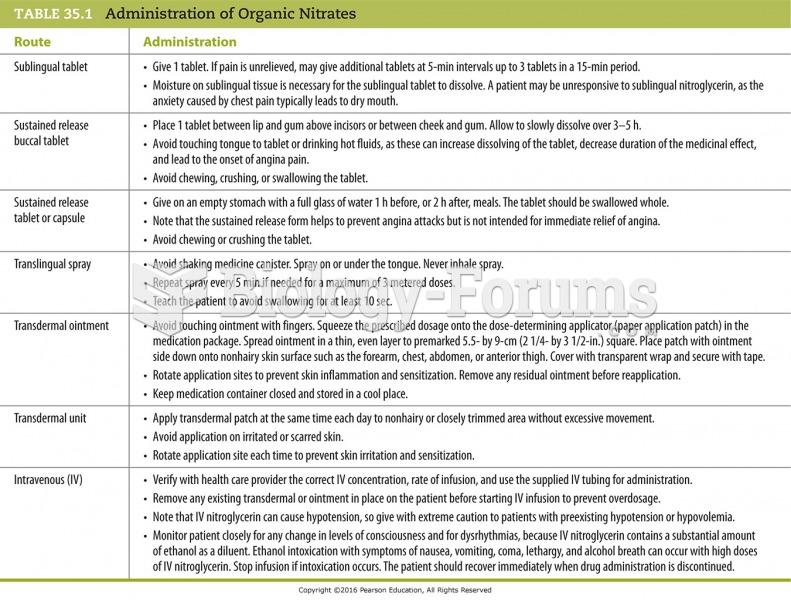|
|
|
An identified risk factor for osteoporosis is the intake of excessive amounts of vitamin A. Dietary intake of approximately double the recommended daily amount of vitamin A, by women, has been shown to reduce bone mineral density and increase the chances for hip fractures compared with women who consumed the recommended daily amount (or less) of vitamin A.
Most fungi that pathogenically affect humans live in soil. If a person is not healthy, has an open wound, or is immunocompromised, a fungal infection can be very aggressive.
Most childhood vaccines are 90–99% effective in preventing disease. Side effects are rarely serious.
No drugs are available to relieve parathyroid disease. Parathyroid disease is caused by a parathyroid tumor, and it needs to be removed by surgery.
In the United States, there is a birth every 8 seconds, according to the U.S. Census Bureau's Population Clock.
 Cranial capacity has increased approximately fourfold over the last 3.5 million years of hominin evo
Cranial capacity has increased approximately fourfold over the last 3.5 million years of hominin evo
 Firing Rate of Individual SCN Neurons in a Tissue Culture Color bars have been added to emphasize th
Firing Rate of Individual SCN Neurons in a Tissue Culture Color bars have been added to emphasize th
 The fact that a mother works outside the home has no negative effect on the well-being of her child ...
The fact that a mother works outside the home has no negative effect on the well-being of her child ...



